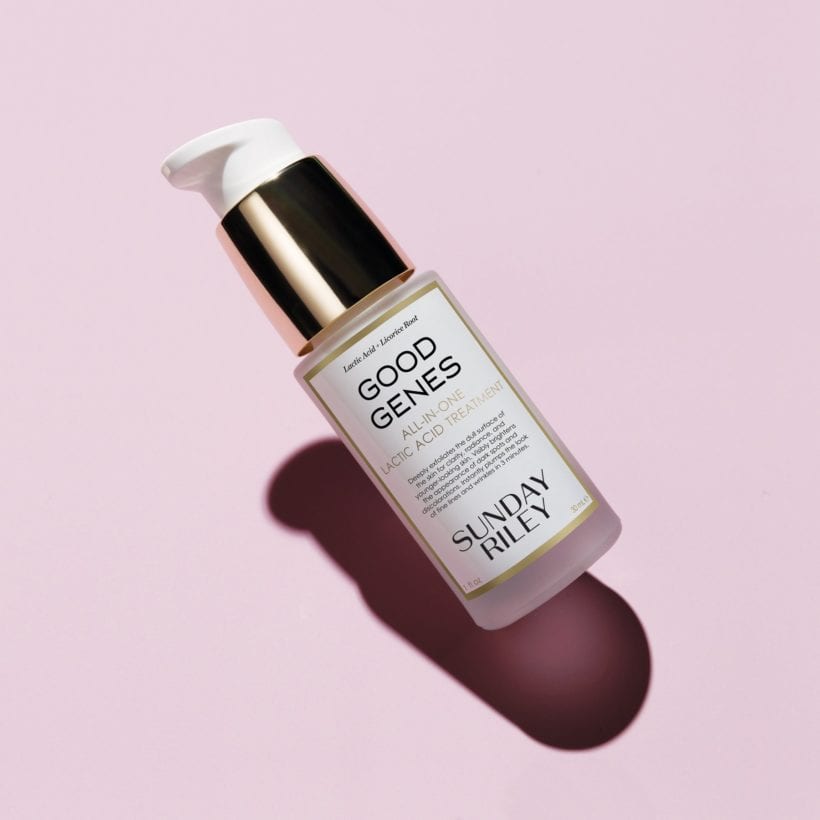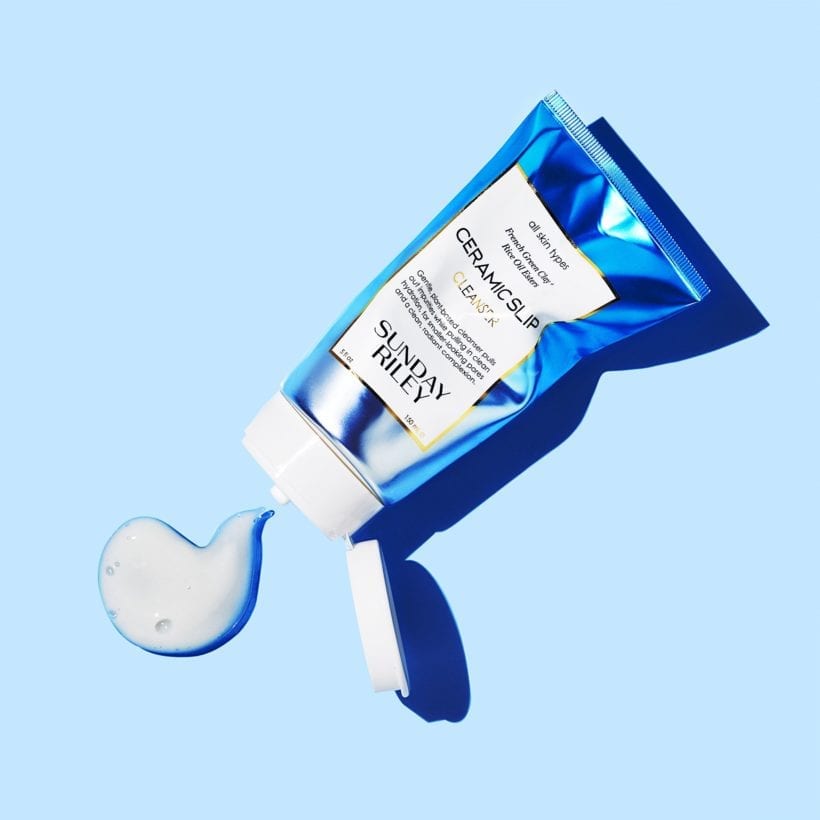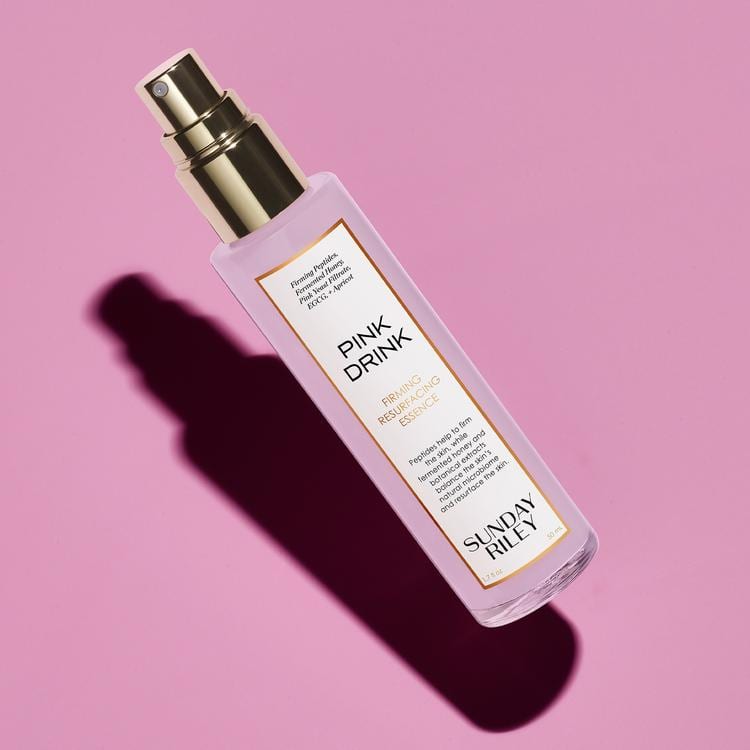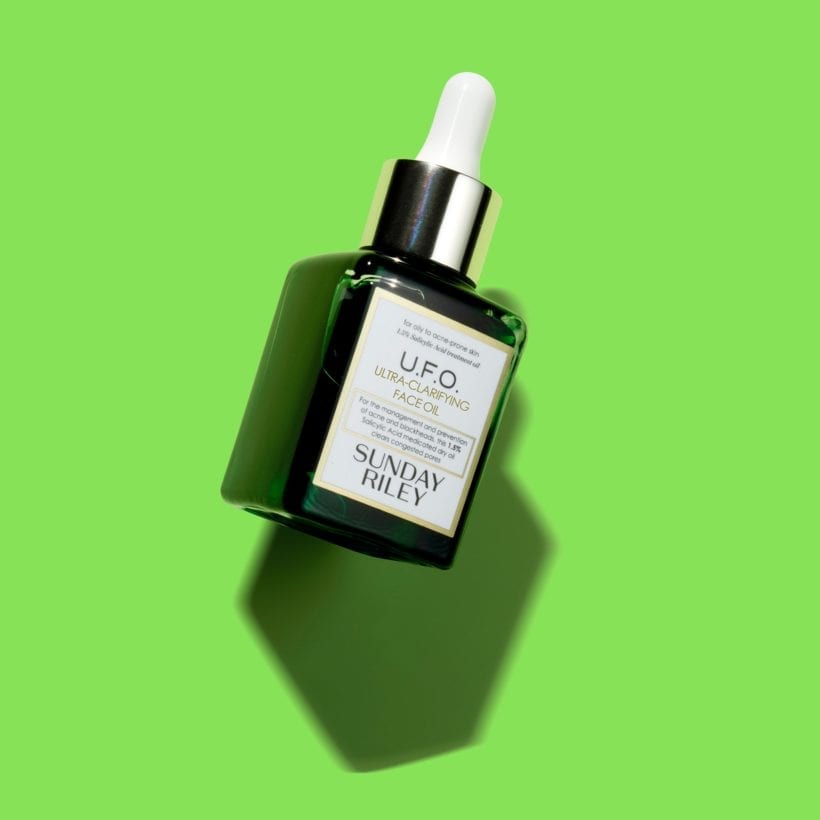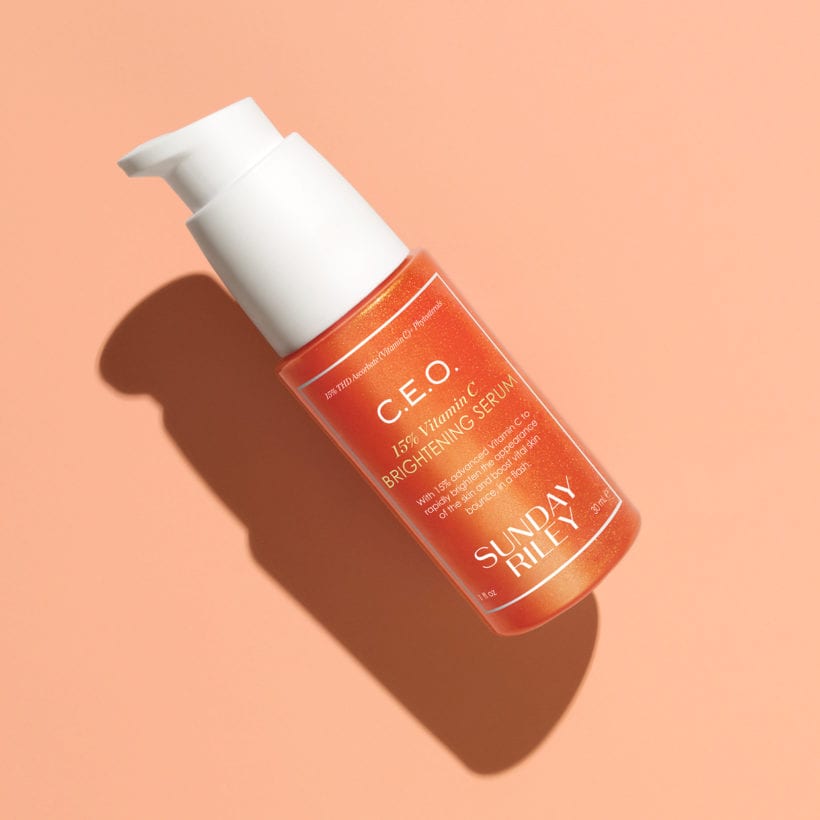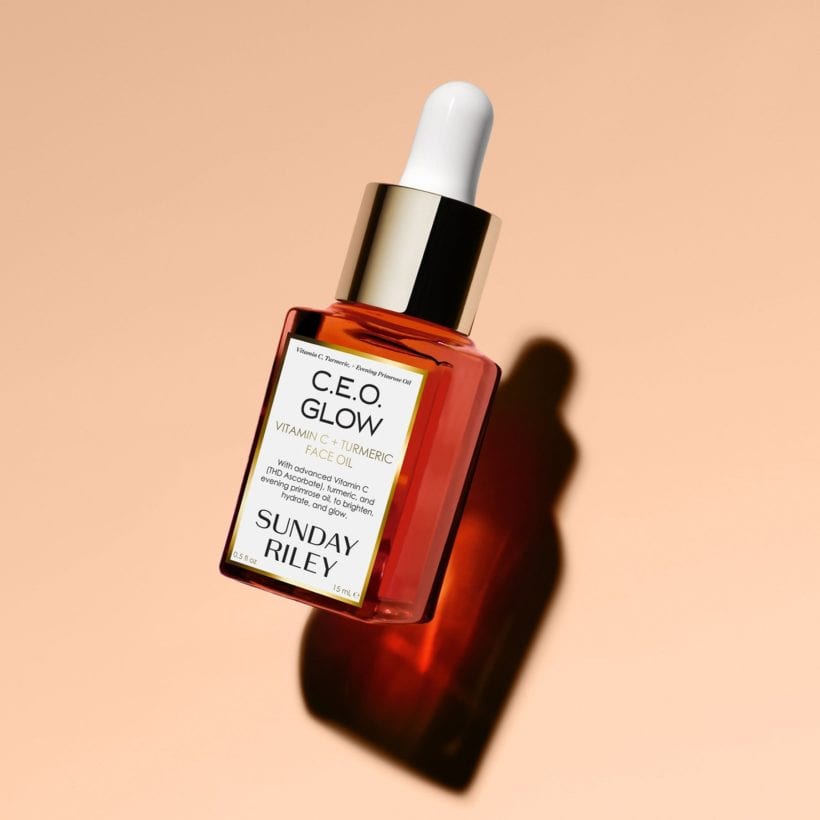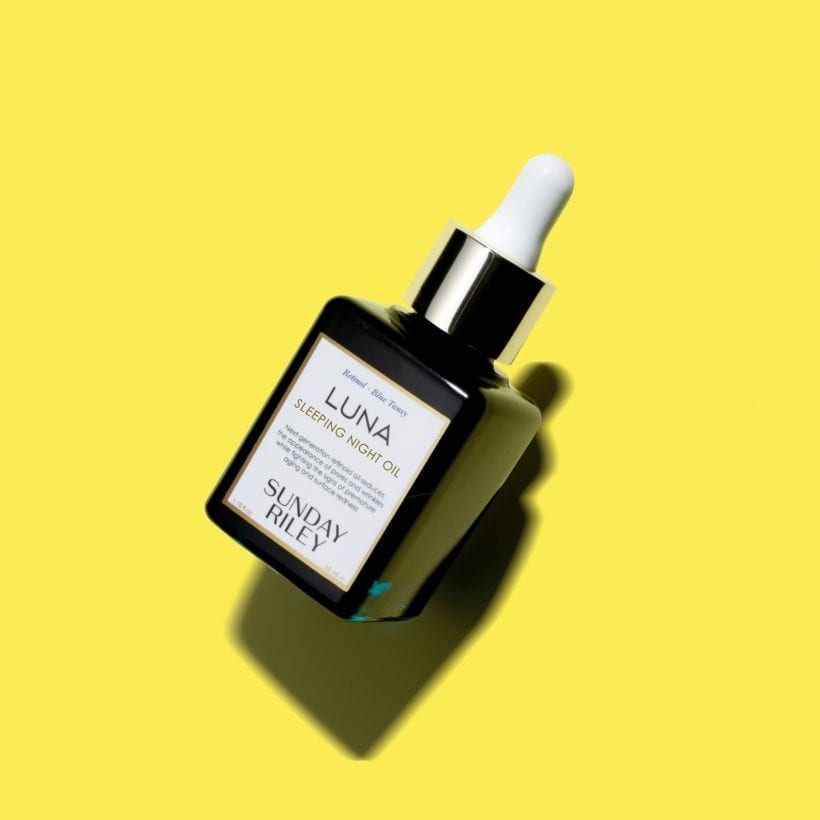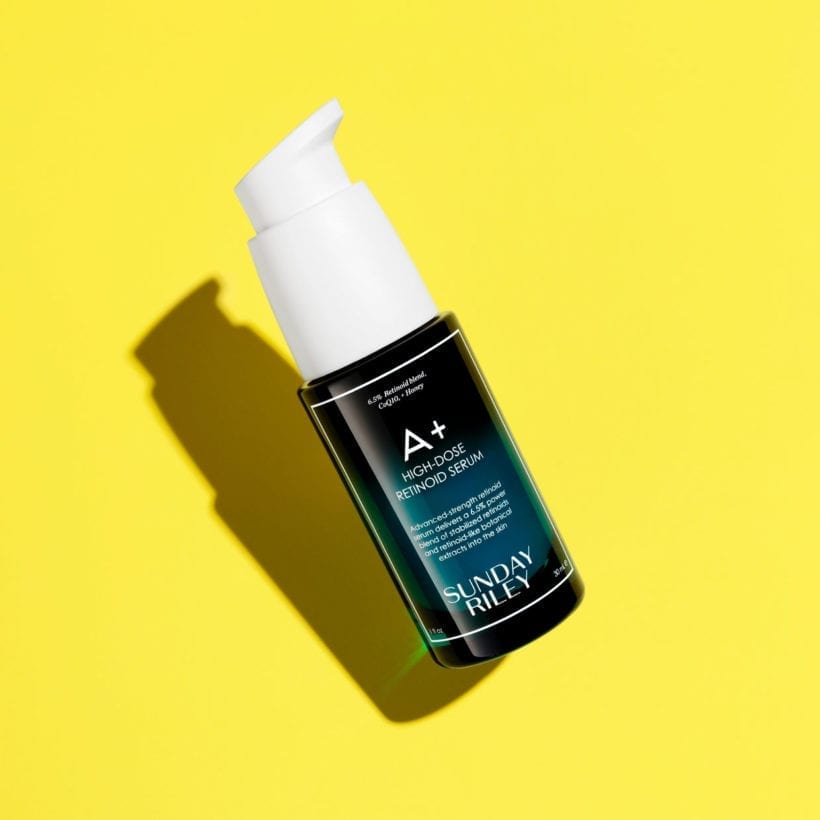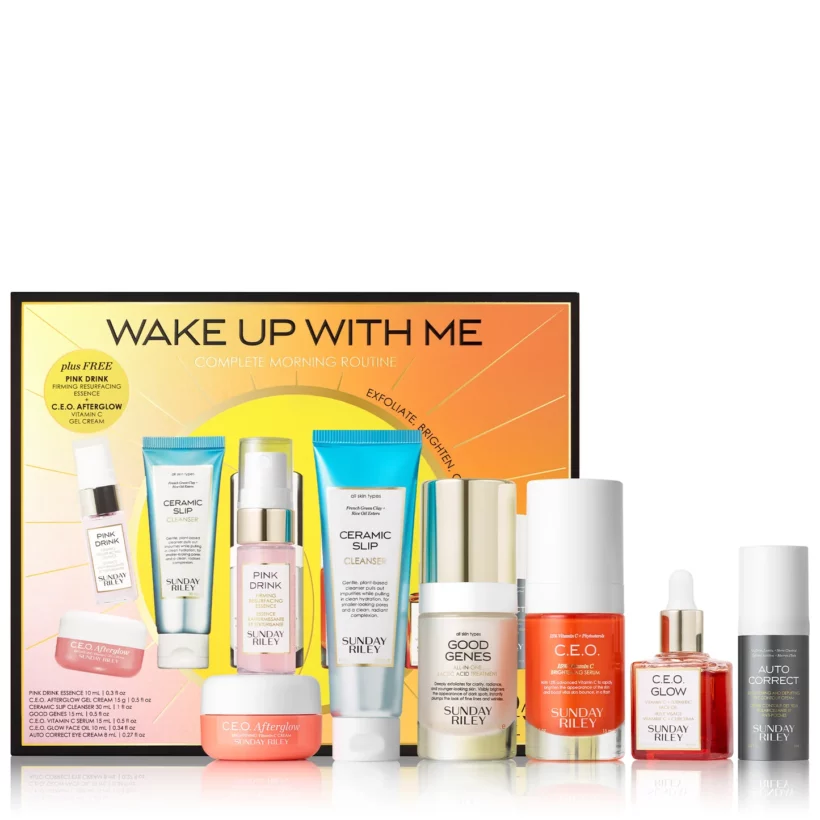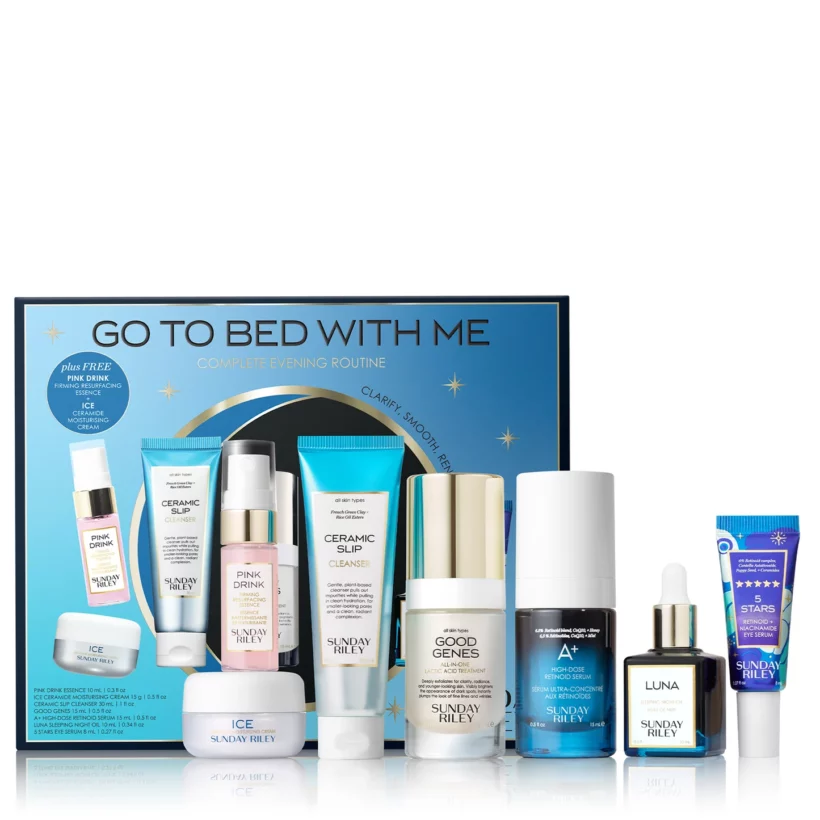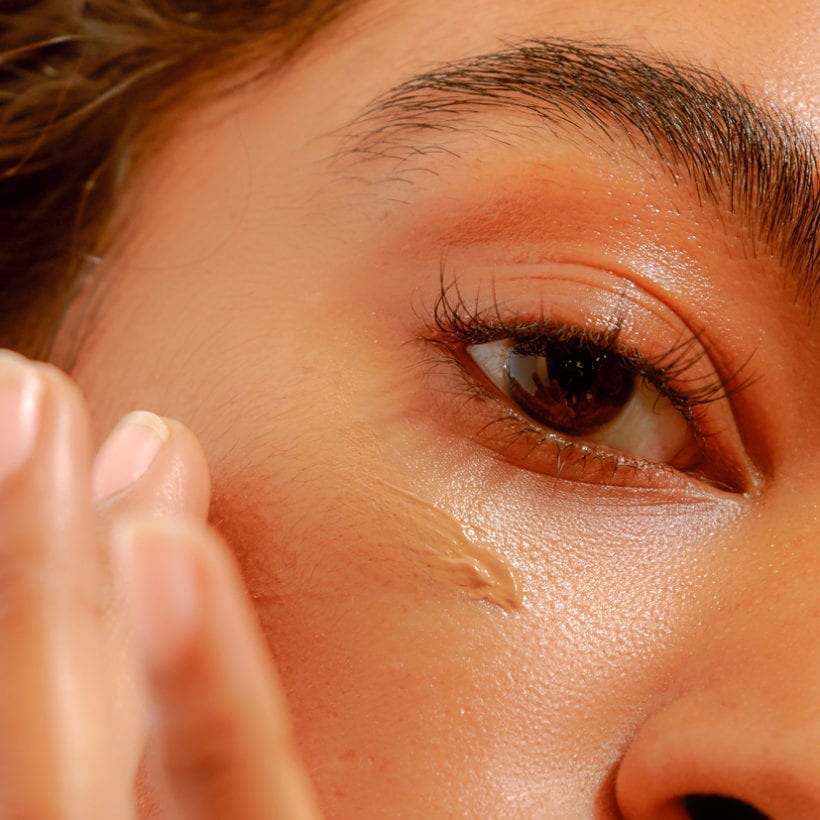Everyone has a different approach to their skincare regimen. For some people, a basic routine that consists of a cleanser, moisturizer, and SPF is all you can wrap your head around. For others, you might have your aesthetician and dermatologist on speed dial (along with a color-coordinated shelfie of skincare wardrobe). No matter which camp you fall in, your products won’t bring out the best in your skin if it doesn’t have the right active ingredients. “One of the biggest misconceptions is that your routine needs to be over complicated and follow a stringent routine or type of layering. We want skincare to be fun and accessible, a form of self-care and taking time out for yourself. My skincare philosophy is simple — everyone can benefit from incorporating AHAs, Vitamin C and Retinol into their skincare routine. If you’re incorporating these ingredients in some way throughout your routine, you have a recipe for radiant, healthy skin,” says Sunday Riley, CEO, founder and product formulator.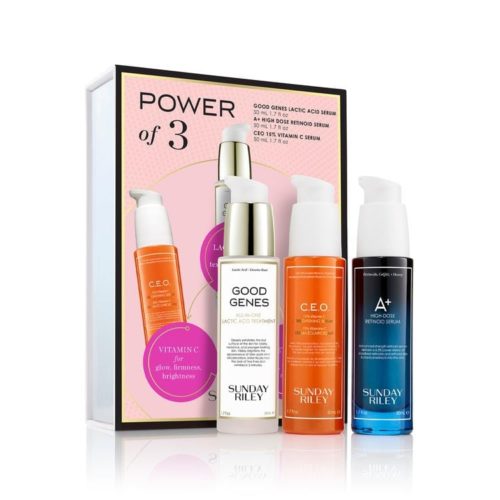
“I also think we all get a little hung up on percentages and ensuring we are always putting the highest concentrations of active ingredients on our skin. When in fact, we sometimes need to look at the ingredients themselves, the quality of the ingredients and how they are being delivered to the skin,” adds Sunday.
Meet the Experts
Sunday Riley , CEO, founder and product formulator
Abi Oleck , celebrity facialist and skincare expert
Dr. Wassim Taktouk , dermatologist
Let’s back up a second: What are active ingredients? Sometimes referred to as actives, they are ingredients that basically help your skincare product do what it says it’ll claim to do. In other words, actives address the concern (wrinkles, acne, dryness, etc.) they’re trying to target. It doesn’t really mean that all the other ingredients are inactive — they help deliver those active ingredients (a.k.a. they play a supportive role and actives are the stars). You can find active ingredients in both over-the-counter products as well as prescription medications from your derm. “The philosophy of my brand is science based skincare balanced by botanicals for healthy, glowing skin. And I’m a big believer as a product formulator that you need three ingredients in your life no matter what your skin type is,” says Sunday. “Because of that I’m going to walk you through Good Genes, which is a lactic acid serum. I’m going to walk you through A+ and Luna for our retinol family and C.E.O. serum and C.E.O. Glow oil for our vitamin C,” explains Sunday.
There are tons of ingredients that promise healthy, glowy, and younger-looking skin. But if you don’t have the time to get a science degree to figure it all out, here are the three active superstars that pack the biggest punch for any skin type:
There are tons of ingredients that promise healthy, glowy, and younger-looking skin. But if you don’t have the time to get a science degree to figure it all out, here are the three active superstars that pack the biggest punch for any skin type:
ACIDS
Acids can be broken down into two main categories: alpha hydroxy acid (AHA) or beta-hydroxy acid (BHA). Both categories are types of exfoliants, but they work slightly different.
AHAs include lactic acids (which traditionally come from lactose) and glycolic (which comes from sugar cane). AHAs are water-soluble and suit normal or dry skin. “They help a wide range of skin conditions including pigmentation, rosacea, dehydration, sensitivity, acne and congestion problems,” says Abi Oleck, celebrity facialist and skincare expert.. They work by breaking down the bond between layers of dead skin cells, speeding up the process of cell renewal. The result? Visibly clearer, brighter and plumper skin.
“Good Genes All-in-One Lactic acid treatment, our bestseller that recently won Allure Best of Beauty award, has this higher dose of lactic acid that is vegan, and it’s balanced with ingredients like lemongrass and licorice root extract to go in and help improve the signs of skin discolorations. Lactic acid is one of my absolutely favorite alpha hydroxy acids. It’s a larger molecule, so it doesn’t sink as deeply into the surface of the skin as other alpha hydroxy acids, which makes it a little bit gentler. But it’s also the only one that’s hydrating. So it’s great for everyone. It’s going to really resurface your skin, but it’s gentler, so you’re not going to get a lot of irritation from it. Whether you suffer with acne or you’re worried about fine lines and wrinkles or dark spots and discolorations. Good Genes really improves the appearance of the skin, no matter what condition you’re working with,” explains Sunday.
“It’s also been clinically proven to plump the look of fine lines and wrinkles in just three minutes (results obtained via profilometry analysis). The texture is really this lightweight. It just blends in very quickly. It’s not oily at all. It’s great for every single person, all skin types, whether you’re 15 or you’re 85,” says Riley. You can apply Good Genes everyday after you cleanse your skin with Ceramic Slip and spritzed Pink Drink Firming Essence.
Tip: Try Flash Fix Facial. Mix equal parts Ceramic Slip Cleanser with Good Genes Lactic Acid Treatment. Blend together and apply to clean skin as a mask. Rinse with water after 10 minutes. Follow with your favorite Sunday Riley treatment and moisturizer.
The most well-known BHA is salicylic acid. BHAs are great for oily or acne-prone skin and much like AHAs, work to break down the bond between layers of dead skin cells. The difference here? They also get inside the pores themselves because BHAs are oil-soluble. “They can get deeper into the pores and remove dead skin cells and excess sebum,” says Taktouk. “Salicylic acid is one of my favorite ingredients for acne. Salicylic is oil-soluble, so it dissolves the oily build-up deep within the pore. It can be very drying as well, but that’s why I like U.F.O. Ultra-Clarifying Acne Treatment Face Oil — because it’s salicylic acid but in an emollient base, so it’s not going to strip your skin and you can use it every single day,” says Sunday.
Tip: Add a couple drops of U.F.O. oil to your foundation to fight blemishes while looking flawless.
VITAMIN C
Vitamin C is a powerhouse antioxidant that can be applied topically to stimulate the production of collagen (the main protein in our skin). “I am a big, big believer in vitamin C, both applying it topically and taking it internally. We don’t produce vitamin C on our own, so definitely eat a vitamin C rich diet if you want to have beautiful skin. And I like to apply it topically with a really high dose vitamin C serum. C.E.O. Brightening serum is a 15% vitamin C serum when it comes to formulated with vitamin C, it’s all about the stability of the ingredient,” says Riley.
“Vitamin C thickens the dermis, diminishes fine lines and is essential for firm, youthful skin,” says dermatologist Dr. Wassim Taktouk. Secondly, as an antioxidant, “it protects skin cells from damaging free radicals caused by UV exposure,” he says. Thirdly, it inhibits melanin production in the skin. “It helps to lighten hyperpigmentation and brown spots by evening out skin tone and enhancing your skin’s radiance,” he adds.
WHAT IS THE BEST FORM OF VITAMIN C?
“Everyone needs in their routine a great stable vitamin C product. Both of our C.E.O. 15% Vitamin C Brightening serum and our C.E.O. Glow oil use a form of vitamin C called Tetrahexyldecyl Ascorbate or what we call THD Ascorbate, which is a vitamin C derivative, and when it goes into the skin, it has an enzymatic reaction with the skin and turns into acid. When I was formulating, for me it was very important that our serum is white because a lot of vitamin C serums actually turned brown or yellow when they’re oxidized. With this beautiful white color you can see it’s never been oxidized, which is really critical to make it effective. This form of vitamin C is also really special: it goes into the skin a lot deeper, it’s oil-soluble. Fun fact: In Japan, a 3% concentration of vitamin C is considered a quasi-drug for brightening the skin. For reference, our serum contains 15% vitamin C. Our C.E.O. Glow oil version contains 1% vitamin C, but because it’s in an oil form, it penetrates the skin more deeply. Plus this is also balanced with turmeric, which is one of my favorite superfoods, a great antioxidant product,” explains Sunday.
Tip: Depending on the product, it’s possible that vitamin C is destabilized when it is exposed to air or direct light. Sunday Riley’s C.E.O. 15% Vitamin C Brightening Serum uses THD Ascorbate that’s stable and doesn’t degrade for years. To be safe, keep your products out of sunlight. “I apply it to my fingertips, massage them together to warm them up and apply it all the way around my face, into my neck, into my upper chest, every single day, twice a day. It has very high dose vitamin C that’s incredibly stable and really great for the overall look and appearance of your skin,” shares Sunday.
RETINOL
Retinol is a synthetic form of vitamin A and is a type of retinoid. (You may have also heard of Retin-A, which is prescription-based retinol, otherwise known as tretinoin). In simple terms, retinol works by gently exfoliating and encouraging skin renewal to reveal younger-looking skin. “It reduces the appearance of wrinkles and imperfections while evening skin tone and improves moisture retention,” says Oleck. However, this doesn’t mean younger or spot-prone skin can’t also benefit. “It can also regulate oily skin and reduce breakouts,” says Taktouk. Expect to see the improvement in the appearance of wrinkles, redness, and pores as well as visibly younger-looking skin.
HOW CAN I START?
As Sunday Riley explains, it is best to start slow and increase the usage or potency as tolerated with any vitamin A-derived topical. “Doing so helps reduce skin irritation, peeling, and even breakouts,” she says. Not all the retinol products are created equally. “If you are new to retinols, Luna Sleeping Night Oil is the one to start. Luna is really powerful for your skin but incredibly gentle. If you’ve ever had any reactions to active ingredients or you have sensitive skin, that’s your go-to product. It’s infused with a low dose of trans-retinol. It can be used every night without irritation, it’s like a baby retinol. And by being in an oil, it helps to protect the integrity of the ingredient and it also helps to slow down the infusion rate into your skin. Luna got its name because it’s a nighttime sleeping oil. It’s really soothing to the skin, but also soothing to your mind. Our oils are not just oils, it’s basically your serum and your oil in one. So you’re going to get that retinol boost to your skin, but then you have these soothing essential oils in there that you can smell, like blue tansy, German camomile and Cape camomile as well. They are wonderful for soothing the look of surface redness and give that blue color to the product. It’s something that I love to put on before I go to bed. I apply it into the palm of my hand, rub it together, and then rub it into my skin as it goes from blue to clear. That’s why I know I really rub the retinoid into my skin effectively. You are waking up flawless,” says Sunday.
I’M NOT A RETINOL NEWBIE, WHAT PRODUCT SHOULD I TRY?
“A+ is significantly stronger than Luna. And with creating a really balanced formula, you get all the benefits of having a really high dose transformative retinol serum without all the drawbacks and the side effects. I think anyone interested in retinoids will really love this product, because they’re going to see results right away, no matter what their concern is, and then they can customize how they use the product to get the results that they want to see,” says Sunday.
WE RECOMMEND: Apply 1-2 pumps in the evening to clean, dry skin. For targeted instructions, see below:
FOR NEW RETINOID USERS: Use two days on, two days off. Work your way up to every other day, then to daily, evening use. Follow with a gentle oil or moisturizer, like C.E.O. Glow or Juno. Use an AHA serum, like Good Genes Lactic Acid Treatment, on alternate nights to sweep away dead skin cells.
FOR ADVANCED RETINOID USERS: Use daily, in the evenings. Follow with a gentle oil or moisturizer, like C.E.O. Glow or Juno. Use an AHA serum, like Good Genes Lactic Acid Treatment, in the mornings to sweep away dead skin cells that come to the surface.
FOR SENSITIVE SKIN: Apply a few drops of a gentle, moisturizing oil, like C.E.O. Glow or Juno to your skin before applying A+ Serum.
You can also use Luna and A+ together, mixing them in the palm of your hand. It helps the product to sink in even deeper.
CAN I APPLY RETINOL PRODUCTS TO MY EYES?
“Retinol, a powerful skincare ingredient, is not recommended for use directly around the delicate eye area, where the skin is thinner and more sensitive. However, when properly formulated for this sensitive region, retinol can be immensely beneficial. For 5 Stars, it was of the utmost importance for me to create a retinoid eye serum for our line-up to complete the evening routine. With the increase in mask-wearing due to COVID-19, I felt there was a larger focus on the eye area so when we launched, it seemed like the right time to innovate in the eye category and extend our retinol range,” explains Sunday.
Tip: Most dermatologists believe that retinol should be applied at night when you’re least exposed to the UV light. Especially for the first few weeks of use, it’s possible retinol can make your skin more sensitive to the sun.
How to Incorporate Them Into Your Routine
At Sunday Riley HQ, we know it could be confusing how to layer your products and when to use them. Despite popular belief, you can use ingredients like vitamin C and retinol at the same time without decreasing their efficacy — all thanks to our innovative formulas. Here are ways to infuse these three superstar actives into your routine:

In the morning…
- Cleanse with CERAMIC SLIP.
- After patting your skin dry, mist PINK DRINK onto your face. Massage into your skin and let dry.
- Follow with 1-2 pumps of GOOD GENES to face and neck.
- Next apply 2-3 drops of C.E.O. GLOW to your face and neck, followed by 1-2 pumps of C.E.O. SERUM (or mix them together and apply as a skin cocktail).
- Apply C.E.O. AFTERGLOW to face, neck, and décolleté.
- Pat 1-2 pumps of AUTO CORRECT around the eye area, starting under the eye and continuing to the outer corners (in the crow’s feet area). Then apply under the brow bone, for a lifting effect.
At night…
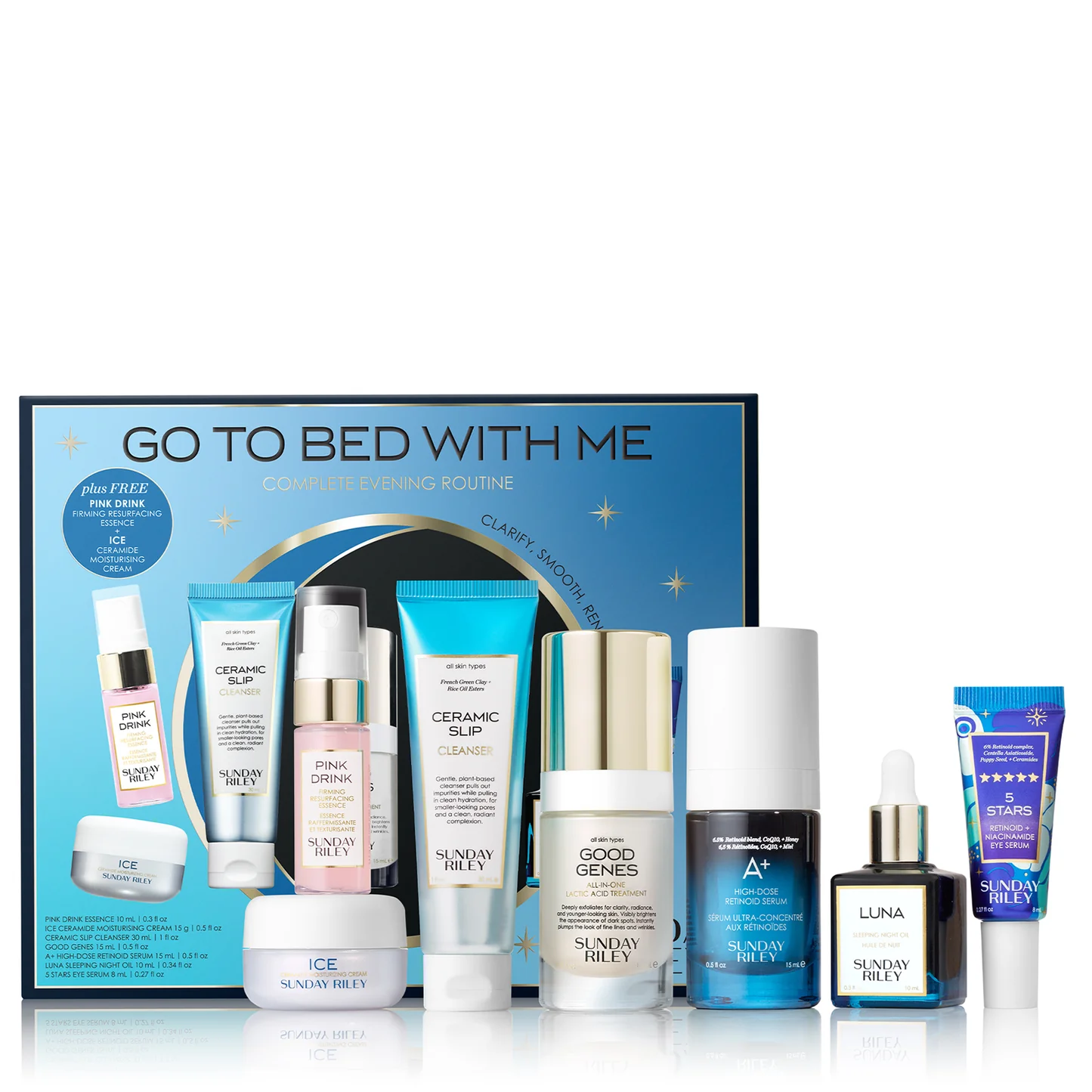
HOW TO USE
- After patting your skin dry, mist PINK DRINK onto your face. Massage into your skin and let dry.
- Follow with 1-2 pumps of GOOD GENES to face and neck.
- Next apply 1-2 pumps of A+ SERUM to your face and neck, followed by 3-4 drops of LUNA (or mix them together and apply as a skin cocktail).
- Using your ring and middle fingers, lightly tap a pearl-sized amount of 5 STARS onto the eye area and massage outwards around the outer crow’s feet, under the eye, and between brow bone and eyebrow.
- Before bed, massage in ICE onto the face, neck, and décolleté to lock in moisture.
We only recommend products we have independently researched, tested, and loved. If you purchase a product found through our links, Sunday Edit may earn an affiliate commission.

